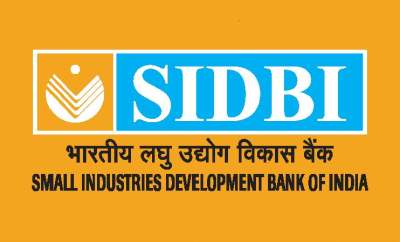SIDBI | Origin | Need | Objectives and functions
Table of Contents
- 1 Need for SIDBI:
- 2 Origin of SIDBI
- 3 Capital of SIDBI
- 4 Objectives of SIDBI
- 5 Functions of SIDBI
- 5.1 Refinance to SSI:
- 5.2 Discounting the bills of SSIs:
- 5.3 SIDBI offers assistance to exports:
- 5.4 Seed capital and also soft loan Assistance:
- 5.5 Non finance services:
- 5.6 Factoring, Leasing and HP finance:
- 5.7 Leasing:
- 5.8 HP finance:
- 5.9 Assistance to other financial institutions:
- 5.10 Automatic finance scheme:
- 5.11 Modernization:
- 5.12 Venture capital:
- 5.13 Single window scheme:
Need for SIDBI:
In India, small scale industry’s contribution during 1998-99 was INR 5,38,357 crores as against INR. 4,65,171 crores in 1997-98. The growth of SSI was 8.43 per cent. It has an employment potentiality of 171.58 lakhs. Hence, it is important to create an apex institution which can provide finance to small scale industries.
Origin of SIDBI
In order to promote small scale industries in the country, a special Act was passed in Parliament in April 1990 for starting of Small Industries Development Bank of India. SIDBI is a wholly owned subsidiary of IDBI. It is providing assistance to all those institutions which are promoting small scale industries.
Capital of SIDBI
SIDBI has an authorised capital of Rs. 1000 crores which can be increased to Rs. 1000 crores. The RBI has also allocated INR 10,000 Crores to SIDBI for various venture capital activities and company startups in 2015. The entire operations of IDBI connected with small scale industries are now handed over to SIDBI.
Objectives of SIDBI
- To promote marketing of products of small scale sector.
- To upgrade technology and also undertaking modernization of small scale units.
- To provide more financial assistance to small scale ancillary and tiny sector.
- To encourage employment oriented industries.
- To coordinate all the other institutions involved in the promotion of small scale industries.
Functions of SIDBI
Coordinating and financing the various institutions involved in the development of small industries are undertaken by SIDBI.
lts functions are
Refinance to SSI:
Refinancing loans and advances provided by commercial banks to small scale industrial units. Different types of loans are given to small scale industries and as per the recommendations of Nayak Committee, additional funds have been given to commercial banks for promoting more borrowings of small scale industries. In fact, there are commercial banks with separate branches meant exclusively for small scale industries.
Discounting the bills of SSIs:
Apart from discounting the bills of small scale industries, even hurdles arising out of financing small scale industries are being discounted. The bank credit has gone up to Rs. 2,18,219 crores. The percentage of bank credit to SSI has gone up to 17.5.
SIDBI offers assistance to exports:
Direct assistance to export oriented units and also to import substituting units in the small scale sector is given the highest priority. There has been a simplified procedure for the exports of small scale industries. Products of SSI exporters are displayed in international exhibitions with the help of SIDBI. Other export related expenditures are borne by SIDBI. Latest packing standards and training programmes on packing for exports are also financed by SIDBI. Trade delegations and sales and study teams are sponsored for small scale sector under Marketing Development Assistance scheme.
Seed capital and also soft loan Assistance:
Seed capital is provided for starting of SSI units. Under this, the initial expenditure in starting the small scale units are being met by SIDBI. In addition to that, SIDBI, under this scheme, undertakes the following activities:
- Identification of potential entrepreneurs in the district.
- Providing training facility for these entrepreneurs.
- Linkage with banks for financial assistance
- Follow-up and monitoring the progress
Under soft loan, SIDBI provides long-term loan repayable in a period of 15 to 20 years with a very low rate of interest.
Non finance services:
Under this scheme, SIDBI undertakes with the help of other institutions marketing survey and the potentialities of small scale industries in the particular area. Wherever possible, it helps in the procurement raw materials.
Factoring, Leasing and HP finance:
In factoring services, SIDBI finances 80% of the bills to the seller and after obtaining the remaining 20% balance, it repays to the seller and for this service it obtains a factoring commission.
Leasing:
After the increase in the fixed capital limit of Rs. 1 crore to SSI, there has been increasing demand for leasing equipment. The small scale industries have expanded their activities as lease finance institutions have enabled them to obtain costly equipment which are otherwise, not possible within the purview of small scale industries, In fact, this has helped them in modernizing their industry.
HP finance:
Hire purchase financing has also helped small scale industries in acquiring machinery of a higher value. In fact, certain machinery are even imported from foreign countries on a deferred payment basis.
Assistance to other financial institutions:
In every State, State Finance Corporations have been promoted for financing small scale industries. They are under the control of respective state governments. At the national level, a separate corporation is promoted for financing small scale industries called National Small Scale Industries Corporation. This was started in 1995 to promote, aid and ensure faster growth in small scale industries.
Automatic finance scheme:
Refinance facilities under automatic finance scheme is also provided which was initially for Rs. 50 lakhs. Now with the increase in the capital limit of small scale industries, this finance scheme has also increased its limit to Rs. 2 crores.
Modernization:
The technology development which has taken place in various industries has also spread to small scale industries and to meet the requirements of technology upgradation, a separate fund has been set up by SIDBI, through which it provides Technology upgradation equipment finance.
Venture capital:
Venture capital fund for the promotion of new entrepreneurs has been set up. For this purpose, IDBI, the holding company of SIDBI provides funds. New ventures in different areas with high technical know how is encouraged under the scheme. Though this scheme is in the initial stage, this will promote more new small scale industries.
Single window scheme:
This scheme was introduced by SIDBI for providing finance to commercial banks which in turn will give all kinds of assistance to small scale industries. That is, from registration units to marketing of products will be undertaken under this scheme.
The creation of SIDBI has certainly improved the growth of small scale industries in the country. Apart from financing, banks have identified the weak areas of small scale industries and have attempted to improve the same. This will go a long way in not only strengthening SSI units but also in the creation of employment opportunities in rural areas.




